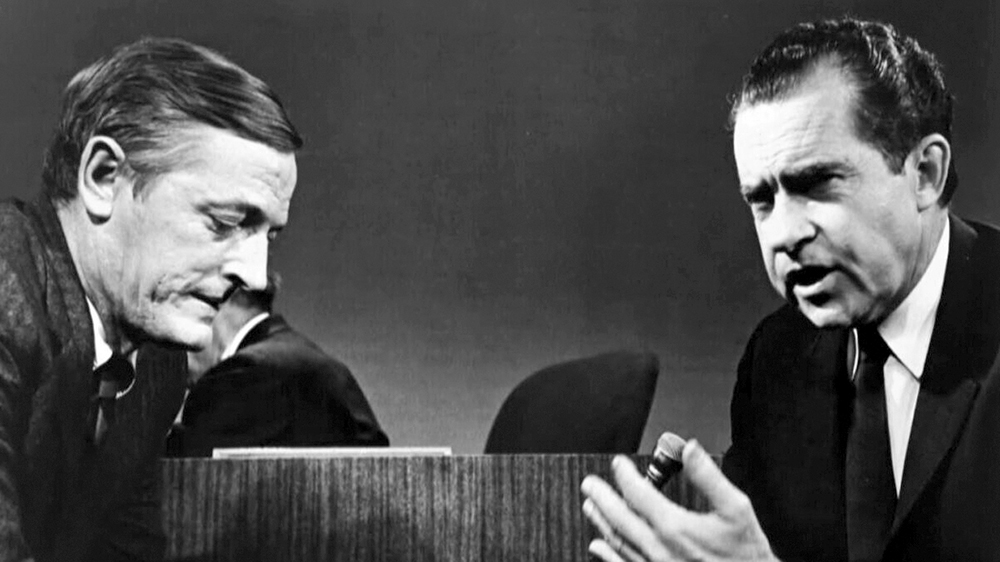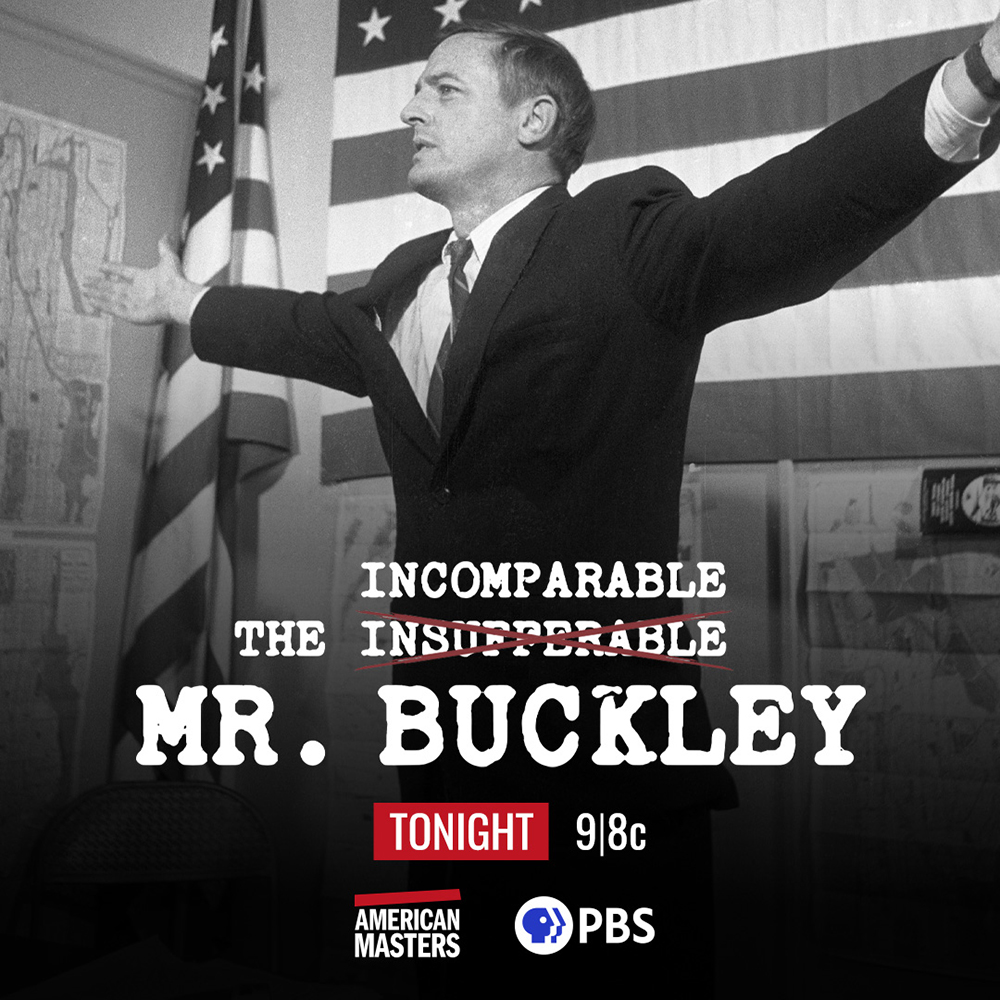|
Getting your Trinity Audio player ready...
|
Edited by: TJVNews.com
The legacy of William F. Buckley Jr., often regarded as the patriarch of modern conservatism, is a complex tapestry of intellectual prowess, political controversy, and unwavering conviction. According to a recently published report in the New York Times, his contributions to conservative thought are undeniable, yet his defense of contentious figures and actions has left a lasting debate over his ideological alignment and his potential stance on contemporary issues, particularly in light of the rise of Donald Trump and his fervent supporters.
Throughout his career, Buckley was known for his unyielding defense of conservative principles, often pushing the boundaries of political discourse through his influential platform as the founder of the National Review and as a prominent commentator, as was noted in the NYT report. However, his defense of figures like Joseph McCarthy and his controversial remarks regarding civil rights demonstrations in Alabama raise questions about his moral compass and the extent of his commitment to conservative values.
The release of the “American Masters” documentary, “The Incomparable Mr. Buckley,” on PBS and streaming platforms has reignited discussions surrounding Buckley’s legacy and his hypothetical stance on Donald Trump and the current state of the Republican Party. The NYT report suggested that given Buckley’s reputation for intellectual rigor and disdain for what he deemed as “boorish thinking and behavior,” many wonder how he would view the rise of Trumpism and the shifting dynamics within the conservative movement.

In the documentary, Buckley’s son, Christopher Buckley, offers a cryptic assessment of his father’s potential reaction to Trump, suggesting that he might humorously demand a recount, echoing a jest his father made during his failed mayoral bid in 1965, the NYT report pointed out. However, in a recent video interview, Christopher Buckley provides a more direct insight into his father’s hypothetical response.
The question of how William F. Buckley Jr. would navigate the current political landscape remains open to interpretation, with some speculating that he would vehemently denounce Trump and his brand of populism, while others believe he would seek to reconcile Trumpism with his vision of conservatism.
As the new documentary “The Incomparable Mr. Buckley” attempts to capture the essence of Buckley’s multifaceted persona, it confronts the challenge of portraying a figure revered by some and reviled by others, whose influence on American politics reverberated throughout the latter half of the 20th century.
Beverly Gage, a history professor at Yale University and author of the Pulitzer Prize-winning biography “G-Man,” offered her perspective on how Buckley might have viewed Trump, as was indicated in the NYT report. Drawing parallels between Trump and the controversial figure of Joseph McCarthy, Gage suggests that Buckley would have seen Trump as a manifestation of themes and constituencies he championed. Despite the differences in their personas and political contexts, Trump’s appeal to certain conservative principles and constituencies might have resonated with Buckley, according to Gage’s analysis.
However, others argue that the relationship between Buckley and Trump is not so straightforward. Some, like Christopher Buckley, express relief that Buckley and Ronald Reagan are not alive to witness the transformation of the GOP and the national discourse under Trumpism, the NYT report said. This sentiment reflects a divergence of opinion regarding whether Buckley would have embraced or rejected Trump’s brand of politics.
The documentary grapples with the complexity of Buckley’s upbringing and intellectual evolution. Born into a wealthy family with ties to Mexico’s oil industry, Buckley received a rigorous homeschooling before attending Yale University. According to the NYT report, it was at Yale where he began to formulate his anti-establishment conservative ideology, famously critiquing the university’s liberal leanings in his seminal work “God and Man at Yale.” Subsequently, Buckley’s defense of McCarthyism in “McCarthy and His Enemies” solidified his reputation as a leading conservative voice, laying the foundation for his influential role as the founder of National Review and his leadership in conservative circles such as Young Americans for Freedom.
As highlighted by filmmaker Barak Goodman, whose portfolio includes documentaries on subjects ranging from the Scottsboro Boys to the Oklahoma City bombing, Buckley’s role in galvanizing conservative movements was unparalleled, as was observed in the NYT report.
Before Buckley’s ascent, there existed various critiques of liberalism, the dominant political philosophy of the time, but lacked a unifying figure to coalesce these disparate factions into a cohesive movement. However, the NYT report explained that Buckley’s charisma, talent, energy, and, most importantly, his visionary intellect, enabled him to bridge these divides and construct a coherent conservative ideology that resonated with a broad spectrum of individuals.
Buckley’s intellectual prowess and strategic acumen were instrumental in consolidating conservative thought and mobilizing support behind a unified cause. His founding of the National Review in 1955 provided a platform for conservative voices and served as a rallying point for like-minded individuals, as was detailed in the NYT report.
However, Buckley’s legacy is not without controversy, particularly regarding some of his more extreme views. His 1957 National Review editorial, “Why the South Must Prevail,” which essentially endorsed racial segregation, remains a stain on his record. Despite later softening his public stance on race, his comments praising the patience of police officers during the Selma protests in 1965 sparked widespread criticism, according to the NYT report. Buckley’s belief in a ruling “remnant,” an elite class naturally inclined to lead, further underscored his elitist and controversial worldview.
Despite his flaws, Buckley’s charismatic persona and sharp intellect made him a formidable figure in American politics, particularly through his PBS debate series, “Firing Line,” which debuted in 1966, the NYT report remarked. Rick Perlstein, a historian and author renowned for his studies on the conservative movement, notes that Buckley played a crucial role in rendering authoritarian ideas more acceptable to cultured audiences who might otherwise have dismissed them.
Buckley’s renowned public debates, captured in works such as Nicholas Buccola’s “The Fire Is Upon Us,” shed light on his confrontations with prominent figures like James Baldwin and Gore Vidal. According to the information provided in the NYT report, Buccola’s book delves into Buckley’s 1965 debate with Baldwin at the Cambridge Union Society, where they discussed whether “The American Dream Is at the Expense of the American Negro.” Despite Baldwin winning the vote by a landslide, Buckley maintained his stance, showcasing his unwavering conviction in his beliefs.
Another notable example of Buckley’s prowess in debate is showcased in the documentary “Best of Enemies: Buckley vs. Vidal,” which explores the televised debates between Buckley and Vidal during the 1968 political conventions. The NYT reported that these debates, chosen by ABC to represent their respective parties, captured the attention of the nation and underscored Buckley’s ability to articulate conservative principles in the public sphere.
Vidal, openly gay and unapologetically liberal, seized the opportunity to needle Buckley, referring to him as a “crypto-Nazi” and mocking his war record as the discussion turned to the confrontation between protesters and police at the Democratic National Convention, recalls the NYT in their report. In response, Buckley, visibly rattled, retaliated by calling Vidal a “queer” and threatened physical violence, an uncharacteristic departure from his usual composed demeanor.
The raw intensity of the exchange, captured on live television, offered viewers a glimpse of Buckley’s unvarnished persona, shedding light on a rarely seen aspect of his character, the NYT report opined. Barak Goodman, the director of the documentary, notes that this moment revealed Buckley’s “street brawler side,” a departure from the polished facade he typically presented on his television show, “Firing Line.”
The debates between Buckley and Vidal serve as a microcosm of the broader ideological divisions and political tensions of their era. Their confrontations, while contentious and at times explosive, encapsulate the fervor and polarization that characterized American politics during the late 1960s.
The portrayal of William F. Buckley Jr. in the new film is met with approval by his son, Christopher Buckley. In his assessment, the film provides a fair and balanced depiction of his father’s life and legacy, evoking a sense of pride and admiration. The younger Buckley’s endorsement of the film’s portrayal underscores its fidelity to capturing the essence of William F. Buckley Jr.’s character, values, and contributions to American conservatism.
Throughout his life, William F. Buckley Jr. remained a stalwart advocate for conservative principles and ideals, leaving an indelible mark on American politics and society. From his early forays into political campaigns to his pivotal role in championing Ronald Reagan’s ascent to the presidency, Buckley’s legacy endures as a testament to





